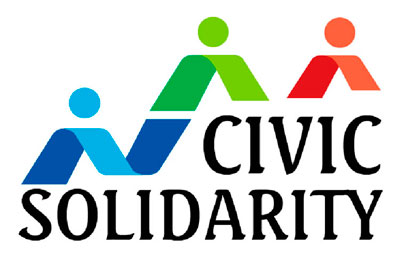2014 OSCE Human Dimension Implementation Meeting, Working Session 5, Wednesday 24 September 2014: Rule of Law 2 Unfair trials used to clamp down on dissent in countries of the former Soviet space
17:51, October 8, 2014 | Announcements, Other | Political Prisoners, Shant Harutyunyan In this statement we want to draw your attention to the issue of unfair trials in countries of the former Soviet Union.
In this statement we want to draw your attention to the issue of unfair trials in countries of the former Soviet Union.
We acknowledge that concerns surrounding unfair trials are not unique to these OSCE participating States, but also merit attention in other parts of the OSCE region.
All OSCE participating States including former members of the Soviet Union have committed themselves to upholding the OSCE Human Dimension Commitments, including those relating to the right to a fair trial. In addition, all countries of the former Soviet Union are parties to the International Covenant on Civil and Political Rights (ICCPR).
By ratifying or acceding to the ICCPR they have committed themselves, inter alia,, not to subject anyone to arbitrary arrest or detention; to provide all necessary safeguards to ensure that detainees are treated with humanity and respect for the inherent
dignity of the human person; and to guarantee that all persons are equal before the courts and tribunals and that trials are conducted fairly by a competent, independent and impartial tribunal established by law.
However, when last reviewing the implementation of obligations under the ICCPR and other international human rights treaties in recent years, UN treaty bodies such as the UN Human Rights Committee expressed concern about the lack of independence of the judiciary in Armenia (2012), Azerbaijan (2009), Belarus (2011 and 2014), Kazakhstan (2011), Kyrgyzstan (2014), Moldova (2009), the Russian Federation (2009), Tajikistan (2013), Turkmenistan (2012), Ukraine (2013) and Uzbekistan (2010).
In its concluding observations to many of these countries the Human Rights
Committee highlighted that the independence of the judiciary was undermined by persistent corruption within the criminal justice system and by the involvement of the executive branch in decisions on promotion, suspension and dismissal of judges, as well as disciplinary actions against judges.
A weak judiciary that is open to pressure from the executive branch is unable to protect the rights of defendants, let alone ensure that government critics are treated fairly by the courts. Indeed, in recent years in many former Soviet countries many of those expressing opinions critical of the authorities have been subjected to arbitrary detention and imprisonment after unfair trials. In many cases justice has been applied selectively, solely targetting those who hold opposition views, those who are critical of government policies or who are perceived to pose a challenge to the state. In many cases charges have been fabricated solely to punish people for peacefully exercising their rights to
freedom of expression, assembly, association, religion or belief.
Unfair trials used to clamp down on dissent in countries of the former Soviet space
